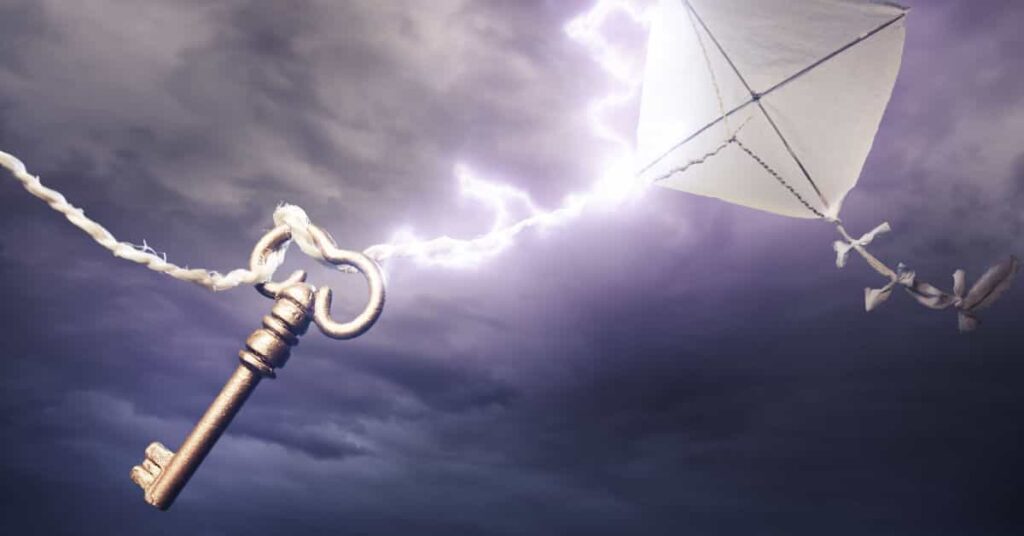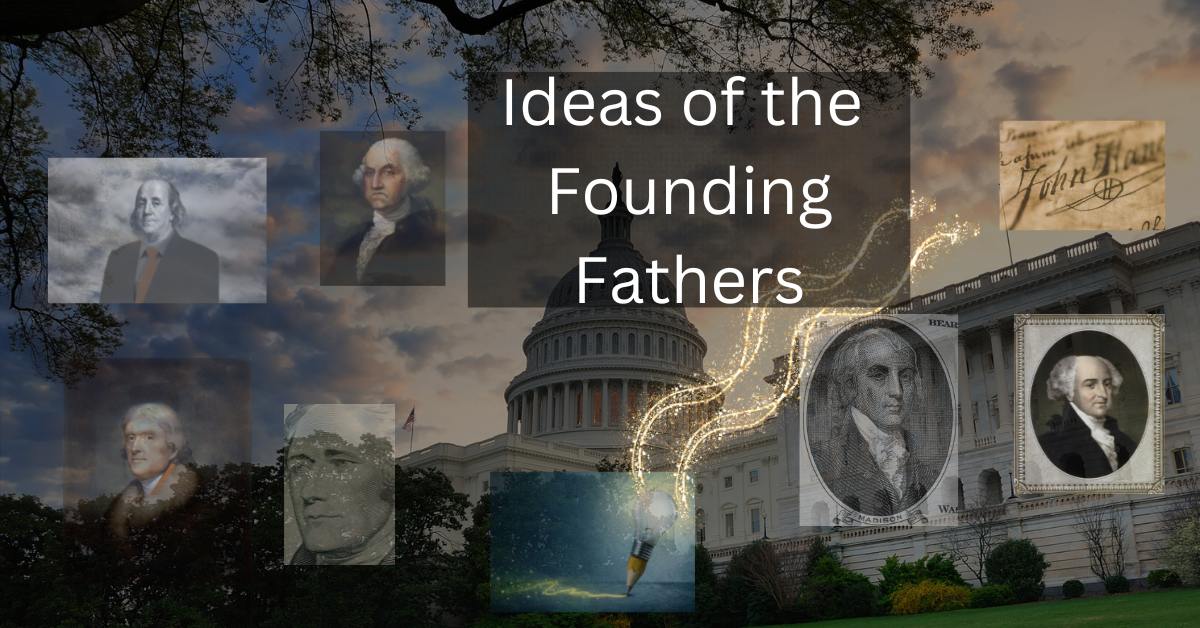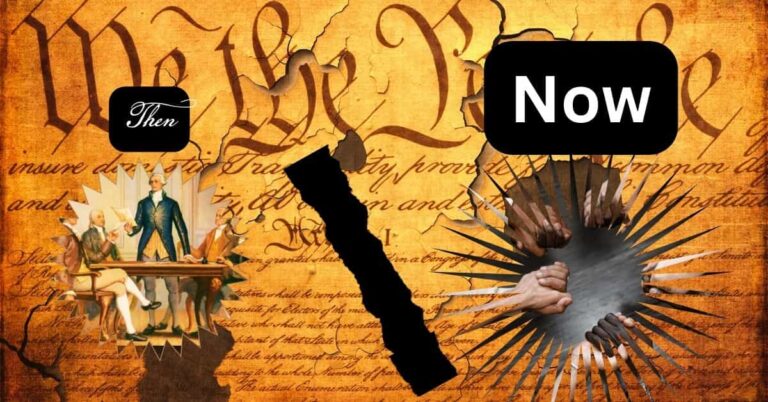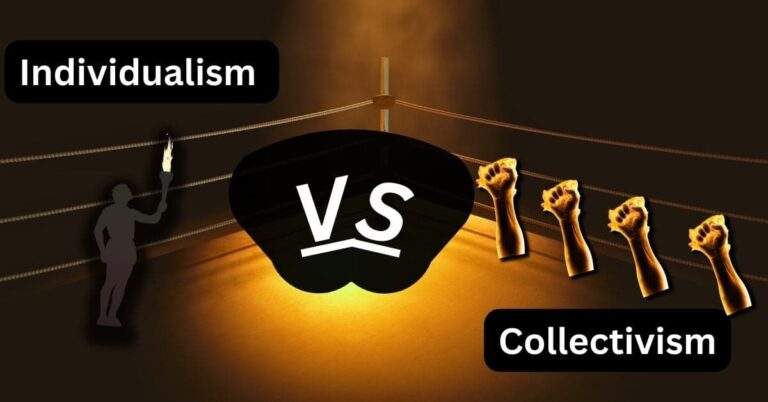Either you’re curious what our Founding Fathers thought, or you need an idea for a class assignment. I will give you both in this post.
Our Founders started the U.S. with previous knowledge gained from reading. To understand their thought process, we must understand the information that they consumed.
The European Enlightenment influenced them the most. We all know this period as the “Age of Reason.” Logic and rational thought symbolized the times. The intellectuals greeted irrational, emotional people with ridicule.
Famous philosophers such as Voltaire, Rousseau, and Montesquieu received the most attention. Their influence is prominent in many of our founding documents.
Let’s explore the ideas the Founders implemented in the United States.
1. Freedom Rings
Urban legend states that the United States is the freest country in the world. When people speak of freedom, they associate it with opportunity.
Opportunity is available when you’re allowed to think for yourself. Influencers made it cool to have independent thoughts. They didn’t worry how others perceived their individuality.
In short, they no longer relied on the elites to solve all their problems. The elites thought for you.
These freedom trends gained the most attention during our formation:
- Freedom of speech
- Freedom to think
- Freedom to move
- Freedom of religion
- Freedom of self-worth
- Freedom to make your own path as long as it didn’t hurt other people
On the list above, you may add other freedoms that I didn’t include.
This freedom movement continues to expand. The Founding Fathers are influencers who started this chic movement.
“Let Freedom Ring!”
2. Science and the Environment
Before the Enlightenment, what kind of technology existed? I will tell you not much. Clouds of darkness and no innovation penetrated Europe and the Americas.
The Founding Fathers considered themselves rational men of science. They examined the contributions to society of geniuses such as Galileo.
He is famous for his dedication to astronomy and observing sunspots in our night sky. The Catholic Church accused Galileo of heresy. Church clergy forced him to disavow his discoveries. They wanted to be the sole authority.
Having one agency control science is never a good idea. The Founders inspired others to share their ideas of science with others for a freer society.
The scientific gains from the Enlightenment influenced Ben Franklin.

Franklin became a man of science. He experimented with lightning during thunderstorms. His experiments yielded that tall metal rod on skyscrapers- known as the lightning rod. Go ahead and thank Ben Franklin for that!
Ben Franklin was a unique character. He always had words of knowledge. LEARN MORE about his famous saying “Liberty over Safety.”
3. Knowledge
I remember the phrase “Knowledge is power” plastered on t-shirts growing up. While this phrase is widely used all over, it holds true in America today.
You do need knowledge to succeed. People go to school to increase their specialized expertise in a particular subject.
- Doctors go to medical school
- Lawyers go to law school
- Engineers go to top universities for their foundation
Each profession must have this knowledge to be experts in their field.
John Locke wrote Essay Concerning Human Knowledge. In this famous essay, Locke discusses where knowledge originates and how it came to be. You have ideas that you ponder and test. After proving your ideas, they transform into knowledge.
Some ideas that turned into knowledge during these years are below:
- Liberty
- Words and vocabulary
- God
I will now explain the 3 ideas above.
Liberty is knowledge today because we have it enshrined in our founding documents. Words and vocabulary have meaning. You must have a working knowledge of vocabulary to function in society. According to Rosetta Stone, English has over 578,000 words that we use.
God is considered a universal being responsible for creation.
It took knowledge and experience from different founders to write our story.
4. Happiness
In the Declaration of Independence, Thomas Jefferson mentions the “pursuit of happiness”. Where do you think he got that idea from?
He read it from Enlightenment influencers and thought about it. He turned the idea of happiness into knowledge.
Thus, he included happiness as fundamental to American society.
5. Individualism and Responsibility
Americans are individualists. We value independence and autonomy.
Individualism shapes ideas into reality. It takes strong-willed people to pursue their goals and dreams. Otherwise, you will be waiting for someone else to accomplish your tasks.
Without the Founders’ individualist mindset, who else would’ve fought for freedom? We know there was no one else but them.
Remember, you’re responsible for your own destiny. The Founders took their responsibility seriously.
Are you curious to the principles of individualism? LEARN MORE and read my list of principles here.
6. God Given Natural rights based on Natural Law

You’re born into an unforgiving world. But all hope isn’t lost.
There are rights granted to you by existing. Again, the Declaration of Independence mentions a glimpse of these natural rights.
They include:
- Life
- Liberty
- Property
Included with the right to life, you have the right to self-defense. You can defend your life. Animals have evolved horns for a reason. They need a way to defend themselves from predators
A need that is necessary to survive is a natural right at birth.
7. Defended Human Rights and the Rights of Humankind
Critics of natural law fail to recognize that natural rights are a precursor to the human rights movement today.
The Founding Fathers wanted liberty for every man, woman, and child. You will hear critics cough and say, “for white-male landowners only.” If that is you, that is a short-sided statement.
Every movement gains momentum somewhere. The human rights movement started its march in 1776– regardless of what excuse you conceive.
The American Revolution is a symbol of human rights. Great Britain considered the colonists inferior.
Thus, Thomas Paine-an 18th-century human rights activist- wrote an entire book called Rights of Man.
There is an entire chapter that discusses a welfare system for less privileged people. He is one of the most prominent Founding Fathers who discusses this openly in his writings.
Therefore, Americans fought for their human rights of liberty and freedom. They continue to develop and improve for humankind.
8. Civic virtue
Civic virtue is developing your talents for the benefit of your fellow citizens. The Founding Fathers thought civic virtue to be important in early America.
They viewed every action through the lens of civic virtue. Their wives reminded them how the public viewed their actions.
Your habits and personality affect your participation in civic duty.
George Washington thought manners to be important. One of his favorite books included 110 rules of Civility & Decent Behavior in Company and Conversation. This Enlightenment-era book was popularized by French Jesuits in 1595.
Here are just some of the habits mentioned:
- “Do not laugh too loud or too much at any public spectacle.”
- “Strive not with your superiors in argument, but always submit your judgment to others with modesty.”
- “Be not hasty to believe flying reports to the disparagement of any.”
- “Think before you speak pronounce not imperfectly nor bring out your words too hastily but orderly & distinctly.”
They believed in being a good citizen. What else did they want? LEARN MORE about the Founders’ vision for this great country we call America.
9. Secularism

Secularism is keeping the separation of church and state. This is fundamental to American government.
Voltaire- a prominent Enlightenment political philosopher- adored religious liberty. But, he radically petitioned for a separation of church from government.
He thought the mixing of the two didn’t go well together. Wars and destruction happened when the clergy controlled the government.
Thomas Jefferson became an adamant admirer of Voltaire. He instituted his philosophy into American government. Jefferson bought over 7 of Voltaire’s works for his personal library.
Also, many state constitutions followed this trend banning clergy from holding political office. The 1777 New York state constitution included a clause prohibiting clergy from public office.
Many other states adopted similar measures.
- Delaware
- Georgia
- Kentucky
- Louisiana
- And many more Southern states
Today many of those provisions have been reversed stating that interfered with liberty.
10. Opposed Direct Democracy
When you have 1,000s upon 1,000s gather in an assembly hall to discuss issues, that is a direct democracy.
James Madison spoke out against direct democracy. That shows in the Constitution. The Founding Fathers wanted a representative democracy-not a direct one.
I have discussed the good of the Enlightenment philosophers. But, Madison and his ability to think in the “Age of Reason” disagreed with Rosseau’s belief of direct democracy as the best form of government.
Rosseau emphasized that the people’s true intentions couldn’t be realized without direct democracy. He believed in the “general will” of the people.
American government adopted a slice of that thought. The government must have the will of the people. However, people needed representation within a governing body we call Congress.
There would be no assembly halls filled with hundreds of millions of Americans connected via video chat.
• What a life these gentleman lived? They started a country still going today. LEARN MORE some more tidbits about their legacy



